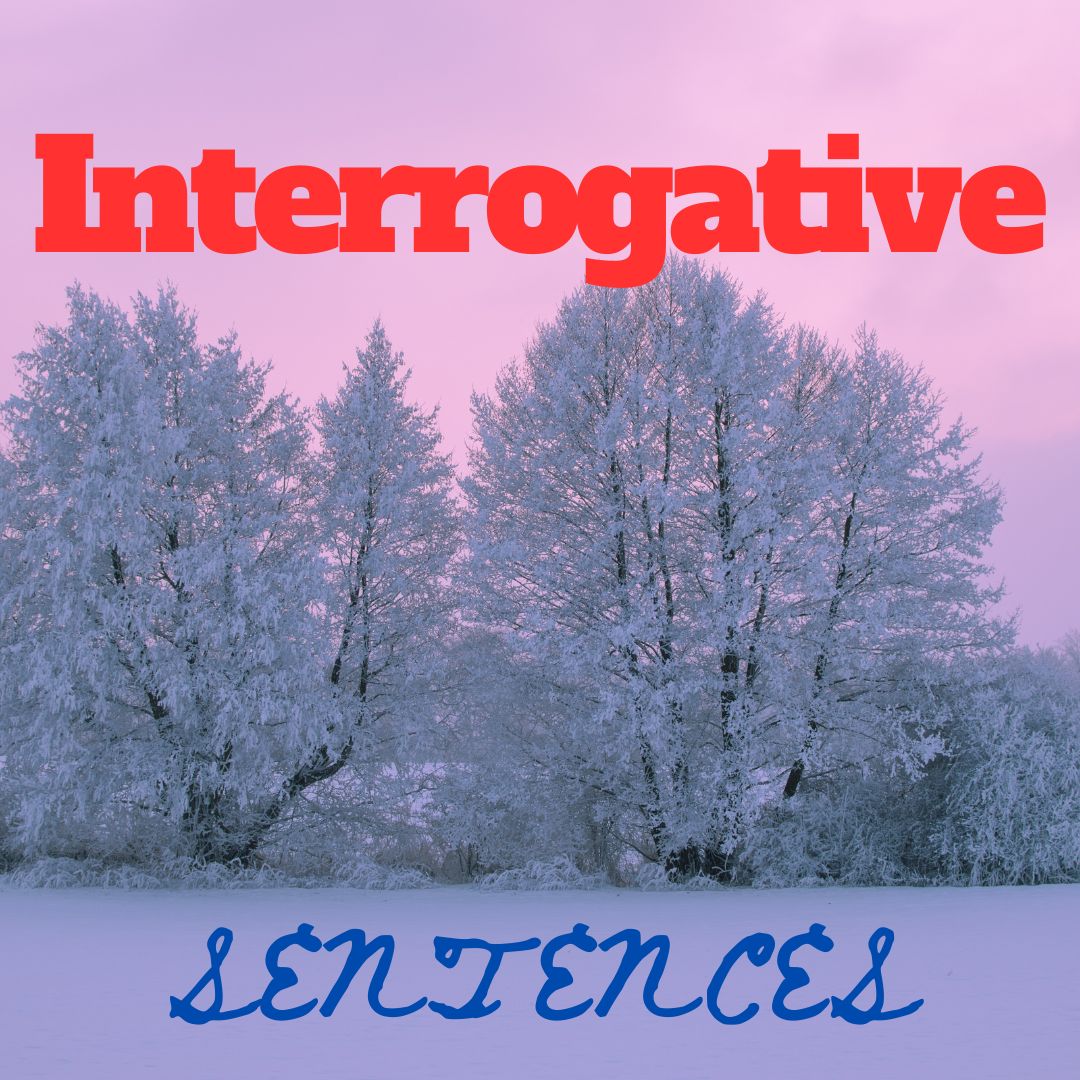Types of Interrogative Sentences

Interrogative Sentences:
Interrogative sentences are a fundamental component of communication, serving as a means to gather information, seek clarification, or initiate conversation. These sentences are designed to elicit specific details, opinions, or responses from the person being addressed. Interrogative sentences often begin with question words, also known as wh-words, auxiliary words, and modal verbs and can take various forms to suit different conversational contexts.
Word Order:
In English, the typical word order for declarative sentences (statements) is subject-verb-object. However, in interrogative sentences, the word order often changes. The auxiliary verb or modal verb usually comes before the subject.
Example (declarative): She is reading a book.
Example (interrogative): Is she reading a book?
4Types of Interrogative Sentences:
There are 4 types of Interrogative Sentences:
Wh-questions
Yes/no questions
Alternative questions
Tag questions
Wh-Questions:
Wh-questions start with words like who? what? where? when? why? how? which? whom? whose?
These questions are particularly effective in extracting detailed information and encouraging thoughtful responses.
Examples :
Who is coming to the party?
What are your plans for the weekend?
Yes/No Questions:
Yes/no questions are straightforward inquiries that require a binary response – either a yes or a no. These questions are useful for obtaining a quick and concise answer.
Examples:
Did you finish your homework?
Yes, I did.
No. I didn’t.
Alternative Questions:
Alternative questions present multiple options, and the respondent must choose one. These questions are effective when seeking preferences or decisions.
Examples:
Do you want tea or coffee?
Would you like to go to the beach or the mountains for vacation?
Tag Questions:
Tag questions are appended to the end of a statement and seek confirmation or agreement. The structure typically involves a positive or negative statement followed by a brief question.
Examples:
You enjoyed the movie, didn’t you?
She doesn’t like sushi, does she?
Question Mark:
All interrogative sentences end with a question mark (?). This punctuation is crucial to distinguish questions from statements.
Example: Have you finished your homework?
Rising Intonation:
In spoken language, interrogative sentences often have a rising intonation at the end. This rising pitch signals that a question is being asked.
Spoken Example: You’re coming to the party?
Types of Interrogative Sentences
Negative Declarative Sentences: Structure, Usage, and Style
Stylistic Elegance: The Role of Subject-Verb Inversion in Language
Parallelism in English Grammar